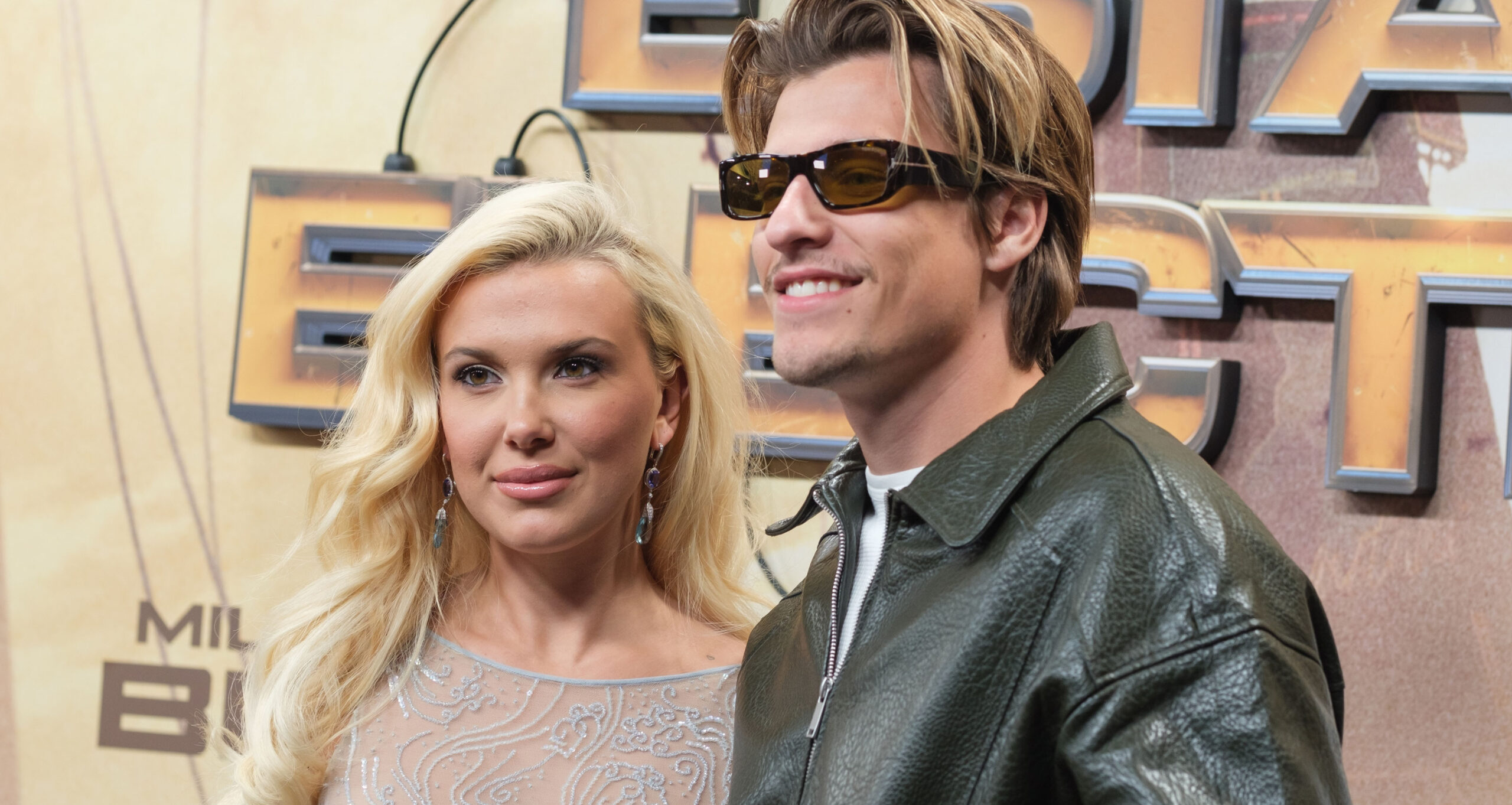Make adoption great again: Millie Bobby Brown and the true story of ‘second-chance’ families
Published on September 10, 2025

In a world captivated by the technological marvels of surrogacy and in-vitro fertilization (IVF), Millie Bobby Brown and Jake Bongiovi have quietly shifted the spotlight to the profound beauty of adoption.
On August 21, 2025, the couple announced on Instagram that they welcomed a baby girl through adoption this summer, sharing a heartfelt message: “We are beyond excited to embark on this beautiful next chapter of parenthood in both peace and privacy. And then there were 3.”
This tender revelation, signed with love from Millie and Jake, underscores the deep generosity at the heart of adoption, reminding us that families forged through adoption are just as vibrant and valid as any other. Their story is reigniting a cultural conversation, celebrating adoption as a path brimming with love and possibility.
Make adoption great again
When public figures like Millie Bobby Brown and Jake Bongiovi share their adoption journey with authenticity, they invite us to reconsider adoption as a life-giving option. Their Instagram announcement, accompanied by a simple sketch of a willow tree, was devoid of fanfare but rich with warmth. “This summer, we welcomed our sweet baby girl through adoption,” they wrote, inviting fans into their joy while requesting privacy. This approach feels personal, not performative, creating space for adoption to be seen not as a fallback but as a deliberate, love-filled choice. By embracing adoption so openly, the couple—married in a private ceremony in May 2024—challenges the notion that infertility means IVF, instead presenting adoption as a vibrant expression of family.
The cultural narrative around family-building often elevates surrogacy and IVF as triumphs of modern science, their outcomes celebrated and debated in headlines. This media frenzy over these reproductive technologies can inadvertently dim adoption’s unique brilliance.
Adoption emerges as a profound response to trauma, addressing the immeasurable loss and grief that children experience when they lose their biological parents—a pain with deep emotional and physiological impacts that are often incomprehensible to those who haven’t lived it. As a society, we have a pressing need to prepare ourselves to meet this trauma with unwavering love, welcoming these vulnerable children into homes that honor their stories and provide healing. In stark contrast, while IVF and surrogacy focus on the production and fulfillment of parental desires, adoption prioritizes the child, transforming a situation of profound pain into one of chosen belonging and restoration. Adoptive parents, like Millie and Jake, stand at the threshold of this sorrow, ready to embrace it fully, walk alongside their daughter through the journey, and alchemize it into enduring love. This reminds us never to overlook the countless children already in the world yearning for a nurturing family.
Millie and Jake’s announcement serves as a compelling antidote, reminding us that adoption is a timeless act of connection. It’s a process rooted in openness and shared destiny, weaving together birth parents, adoptive families, and communities. Their story reintroduces adoption as a contemporary choice, one that celebrates love over lineage and family in its most inclusive form.
Why adoption deserves a renaissance
Adoption doesn’t need to be saved from stigma, but it does crave a refreshed narrative, one that amplifies its emotional and communal depth. Adoption is inherently about acceptance and healing. It invites a web of relationships into the moment a family says, “We choose you.” This interconnectedness is a strength deserving of celebration in our public stories. Millie and Jake’s announcement, described as “grounded” and “unflashy,” exemplifies this. By sharing their joy without seeking publicity, they highlight adoption’s quiet power, making it feel both accessible and profound.
Their story also speaks to a broader need: ensuring all children see themselves in the narratives we tell about families. By lifting adoption into the spotlight with authenticity, Millie and Jake widen the definition of “normal” family life. This matters, affirming that every child, whether adopted or biological, belongs in the stories we share. Their announcement, met with widespread support on platforms like X, counters critics who question their youth, with fans noting, “If you have a problem with two married adults adopting a child, then I am sorry for whoever or whatever hurt you.” This sentiment underscores adoption’s universal appeal, resonating with those who see love, not age, as the foundation of parenthood.
It is also worth mentioning that, due to their age, it is somewhat safe to assume that this decision to adopt is not a last resort after failed attempts to conceive, but simply something they were open to and decided to do.
The gifts of adoption
Adoption is more than an alternative; it’s a profound proposition that redefines family through intention and care. It offers a broader sense of kinship, connecting adoptive parents to birth families, communities, and traditions in a rich, relational tapestry. Millie, who has spoken about her desire for a large family, emphasized this openness on the SmartLess podcast in March 2025, saying, “I don’t see having your own child as really any different than adopting.” Her words reflect adoption’s affirming truth: belonging is chosen, not assumed, creating bonds that are deeply meaningful for both parents and children.
This choice also carries cultural weight. When icons like Millie and Jake share adoption stories with clarity and pride, they normalize phrases like “we adopted our daughter” as ordinary and joyful. Their journey is rooted in their own upbringings, as both come from families of four children, and this challenges society to value presence over provenance. As Millie noted, her parents had their first child at 21 and 19, inspiring her lifelong dream to be a young mother. By choosing adoption, the couple reorients the conversation from “where did your child come from?” to “how did your family come together?” A shift that deeply enriches our culture.
A cultural call to celebrate adoption
Millie and Jake’s story isn’t a campaign but a lived reality, echoing Millie’s comment on SmartLess: “My home is full of love for anyone or anything.” This ethos, shared with Jake, invites others to see adoption as a path filled with warmth and possibility, healing communities touched by longing or infertility.
These stories must also prioritize empathy over celebrity. Millie and Jake aren’t promoting adoption for clout; they’re sharing its beauty as part of their lives. This authenticity, seen in their request for privacy and their focus on “peace,” resonates more than any publicity stunt.
By framing adoption as an act of compassion and identity, we elevate it as a dynamic choice, worthy of the same cultural spotlight as technological advances. Their journey, already sparking conversations on X and beyond, invites us to reimagine adoption as a vibrant, intentional act of love.
Restoring adoption’s place in our stories
Adoption deserves a central place in our collective narrative, not as a lesser path but as one equally beautiful. Millie Bobby Brown and Jake Bongiovi’s Instagram announcement pulls adoption into everyday view, reminding us that it’s not “the other path” but simply a path, one that leads to home. Their story, shared with simplicity and heart, updates our cultural vocabulary, spreading warmth and inviting reflection on the many ways families are built.
For those beginning their family journeys or simply witnessing this moment, Millie and Jake’s openness is revolutionary. It asks us to consider: What other stories of love are we missing? By weaving adoption into our conversations, media, and hearts with joy and pride, we ensure it shines as brightly as it deserves.
Adoption isn’t second to any path; instead, it’s first in generosity, first in chosen belonging, and first in love. Let’s honor their example by celebrating adoption as a radiant moment in the tapestry of family.




I am a mother of two adopted children. They couldn’t be more “mine” if I had given birth to them. It is a beautiful and natural way to become a family.